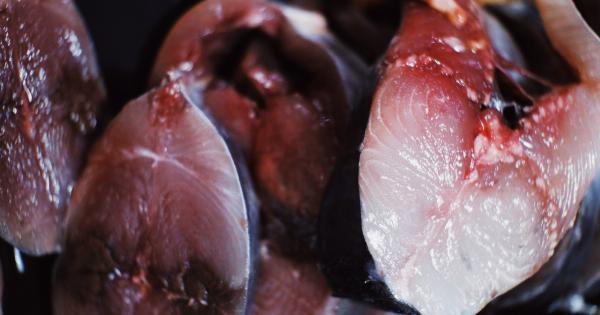Blood taste in the mouth, medically known as “metallic taste,” is a relatively common symptom that can have various causes. It can be an alarming and distressing sensation, but it is often not a cause for immediate concern.
This article explores the potential causes and implications of a blood taste in the mouth, as well as possible treatments.
1. Oral Health Conditions
A blood taste in the mouth can sometimes be attributed to oral health conditions such as gingivitis, periodontal disease, or mouth ulcers. These conditions can lead to bleeding gums, which may result in the taste of blood in the mouth.
Poor dental hygiene and certain medications can also contribute to these conditions.
2. Nasal Issues
Nasal issues, such as a sinus infection, nasal polyps, or allergies, can cause blood to drip down the back of the throat, leading to a metallic taste in the mouth.
The blood can come from irritated blood vessels or from inflammation-induced bleeding within the nasal passages.
3. Respiratory Conditions
Respiratory conditions like bronchitis, pneumonia, or tuberculosis can cause blood taste in the mouth due to coughing up blood. This condition, called hemoptysis, occurs when blood from the lungs enters the respiratory tract.
4. Uncontrolled Nosebleeds
Frequent, severe, or uncontrolled nosebleeds can result in blood taste in the mouth. When the blood from a nosebleed travels to the back of the throat, it can cause a metallic or bloody taste to linger.
5. Medications and Supplements
Some medications and supplements can produce a metallic taste as a side effect. These may include certain antibiotics, antihistamines, nonsteroidal anti-inflammatory drugs (NSAIDs), and supplements like zinc or copper.
6. Gastrointestinal Issues
Various gastrointestinal conditions, such as gastroesophageal reflux disease (GERD) or gastric ulcers, can lead to blood taste in the mouth.
When stomach acid flows back into the esophagus, it can cause irritation or damage, resulting in a metallic taste. Gastric ulcers, on the other hand, can cause bleeding that leads to blood entering the digestive system.
7. Vitamin Deficiencies
Deficiencies in certain vitamins and minerals, particularly vitamin B12 or zinc, can cause a metallic taste in the mouth. These deficiencies can stem from poor diet, malabsorption issues, or underlying medical conditions.
8. Neurological Stimulation
In some cases, a blood taste in the mouth could be related to neurological factors. Certain neurological disorders or even anxiety can lead to altered taste perceptions, including a metallic taste.
9. Pregnancy
Some pregnant women may experience a blood taste in the mouth due to hormonal changes, especially during the early stages of pregnancy. This symptom typically resolves as the pregnancy progresses.
10. Other Possible Causes
There are several other potential causes of a blood taste in the mouth, including blood transfusions, certain medical procedures, chemotherapy, radiation therapy, or exposure to certain chemicals or toxins.
Treatment and Prevention
The appropriate treatment for a blood taste in the mouth depends on its underlying cause. In many cases, addressing the root cause can help alleviate the symptom. Here are some general tips:.
1. Maintain Good Oral Hygiene
Regular brushing, flossing, and professional dental cleanings can reduce the risk of oral health conditions that may cause blood taste in the mouth. A visit to the dentist can also help identify and treat any oral health issues promptly.
2. Manage Nasal and Respiratory Conditions
Seeking medical treatment for nasal or respiratory issues, such as allergies or infections, can alleviate the symptoms associated with blood taste in the mouth. This may involve using saline nasal sprays or taking prescribed medications.
3. Address Gastrointestinal Problems
If gastrointestinal issues are causing the blood taste, it is essential to consult a healthcare professional. They can provide guidance on dietary changes, prescribe medications, or recommend further investigations or treatments.
4. Review Medications and Supplements
If medications or supplements are suspected of causing the metallic taste, it is advisable to consult a doctor or pharmacist. They can review the medications/supplements being taken and potentially recommend alternatives or adjustments.
5. Increase Vitamin Intake
If vitamin deficiencies are contributing to the blood taste, a healthcare professional can recommend appropriate supplementation or dietary changes to address the deficiency.
When to Seek Medical Attention
While a blood taste in the mouth is often harmless and temporary, there are situations where medical attention is necessary. Seek prompt medical care if:.




























